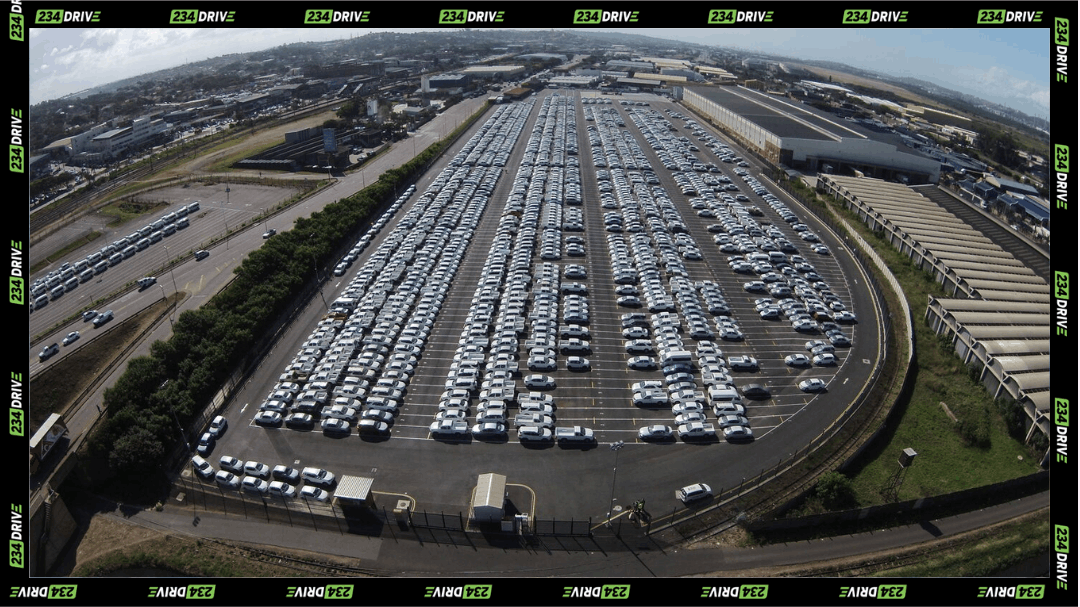Nord Automobiles Limited has taken a bold step into Nigeria’s electric mobility space with the launch of its EV subsidiary, Tavet Motion, unveiled at the Oriental Hotel in Lagos in early November 2025. The event brought together government officials, industry players, and investors, marking a defining moment for local automotive innovation. With fuel scarcity, rising import costs, and a global push toward clean energy, Tavet Motion’s arrival signals a practical shift toward homegrown electric transportation built for African roads.
The new subsidiary debuted three locally assembled EVs, the Luto, Garent, and Vant, each designed for specific market segments. The Luto targets city commuters with a compact build and a range of around 200 km per charge. The Garent, a luxury sedan, pushes boundaries with advanced safety features, modern design, and a claimed range of up to 1,200 km, positioning it as Nigeria’s most ambitious electric model to date. The Vant focuses on logistics and delivery operations, capable of carrying over a ton of cargo with a 305 km range. Pricing starts around ₦16 million for entry-level variants and rises to ₦32 million for premium trims, offering affordability compared to imported EVs.

At the event, Nord’s CEO Oluwatobi Ajayi framed Tavet Motion as more than a car company, but also a long-term strategy to build a complete EV ecosystem in Nigeria. Beyond manufacturing, the firm plans to roll out charging stations, integrate solar-powered fast chargers, and eventually leverage Nigeria’s growing lithium reserves for local battery production. Ajayi’s focus on renewable integration and homegrown solutions aligns with national clean energy goals and the African Union’s Agenda 2063, which prioritises sustainable industrialisation and green mobility.
Ajayi, who featured in Forbes Africa’s 30 Most Promising Young Entrepreneurs in 2018, leads this transition with a clear vision: “We’re not just selling cars; we’re building an entire EV ecosystem.” His statement captures the broader ambition to create jobs, reduce fuel dependence, and position Nigeria as West Africa’s EV hub. By using local facilities in Lagos for assembly and partnering with suppliers from Thailand and China, Tavet Motion blends international standards with local craftsmanship.
The company’s product rollout reflects careful segmentation. The Luto is tailored for young professionals and students navigating city traffic. The Garent serves executives seeking performance and luxury, while the Vant supports delivery companies and fleet operators struggling with fuel costs. Each model includes essential features like ABS, hill-start assist, and reverse cameras, and all can charge at home or work. The Garent’s claimed 1,200 km range has drawn attention: some analysts see it as ambitious, possibly reflecting modular battery configurations or extended-range options yet to be detailed.
From a business perspective, Tavet Motion signals Nord’s pivot from traditional vehicles to clean-tech manufacturing. It demonstrates confidence in Nigeria’s ability to build and sustain advanced automotive systems locally. Ajayi’s leadership also reflects a generational shift among young African entrepreneurs driving innovation despite infrastructure limitations. By investing in EV assembly, renewable energy integration, and workforce development, Nord is betting on long-term transformation rather than short-term hype.
The broader implication is clear: Nigeria’s automotive industry is evolving from dependence on imports to local production and energy independence. If Tavet Motion succeeds, it could redefine how Nigerians commute and how the continent approaches mobility. The challenge now lies in scaling infrastructure, charging networks, stable power supply, and supportive policies. Industry experts estimate Tavet could capture up to 15% of Nigeria’s emerging EV market within two years, provided these structural gaps are addressed.
As Nigeria moves to diversify its energy mix and reduce carbon emissions, Tavet Motion represents a statement of intent. It challenges global perceptions of Africa’s readiness for electric mobility and opens new conversations about what sustainable transport should look like on the continent. Whether this launch becomes the cornerstone of a local EV revolution or a slow-burning transition will depend on execution, policy backing, and consumer trust.
In Ajayi’s words, “Tavet is proof that technology, when localised, can transform lives.” That belief now faces its biggest test: turning Nigeria’s EV potential into a reality that lasts.









